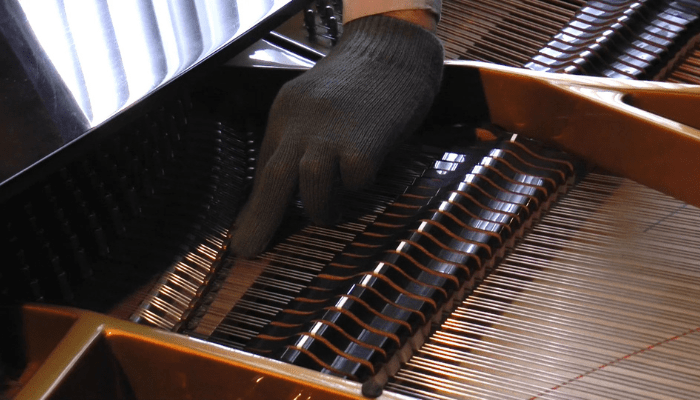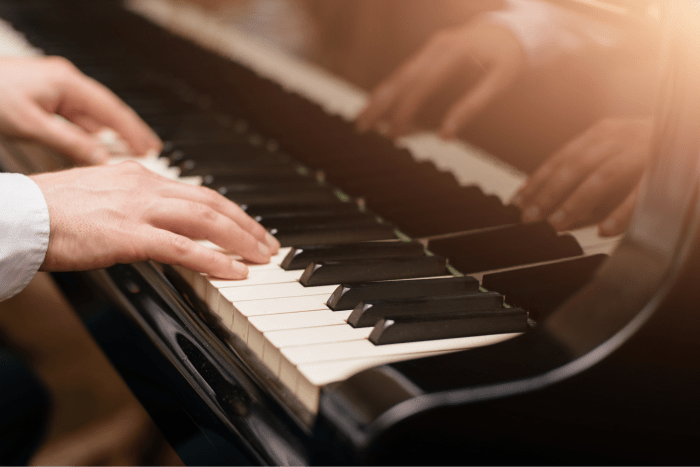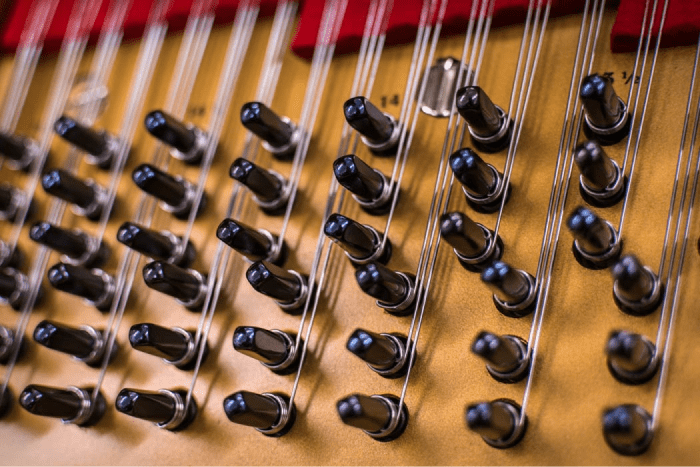How Often Should You Tune Your Piano?
Owning a piano is a source of joy and pride for many, but keeping your instrument in perfect pitch requires regular maintenance. Whether you’re a beginner taking piano lessons, a professional pianist, or simply an enthusiast with a piano in your living room, understanding how often to tune your piano is essential for maintaining its sound quality and longevity.

Why Your Piano Needs Regular Tuning
Tuning your piano isn’t just about keeping it sounding beautiful—it’s about preserving the delicate mechanics inside the instrument. Acoustic pianos are highly sensitive to temperature changes, relative humidity, and even how often they’re played. Inside a piano, tuning pins hold the steel strings at high tension. Over time, these strings stretch, and the pins can shift, causing the instrument to go out of tune. Without regular tuning, these issues can lead to an out-of-tune piano that affects its performance and overall condition.
The short answer to the question how often should I tune my piano? is that acoustic pianos should be tuned at least once a year. However, there are several factors to consider that can influence this recommendation.
First Year of a New Piano
New pianos require frequent tuning during their first year because the strings stretch and settle. A good rule is to have your piano tuned three to four times in its first year.
Home Pianos vs Professional Use
For pianos played regularly by piano teachers or used in piano lessons, more frequent tuning is recommended to maintain optimal sound. Professional pianists may require tuning before every performance to achieve perfect pitch.
Older Pianos
Older pianos often need extra care due to wear and tear. Keeping them in good working order with annual or biannual tuning is essential to prolong their lifespan and sound quality.
Factors That Affect Your Piano’s Tuning
Several factors can affect how often your piano needs tuning. Understanding these will help you keep your instrument in good condition. You should consider:
Temperature fluctuations: Pianos are highly sensitive to temperature changes. Moving a piano or exposing it to humidity fluctuations can cause the metal frame and steel strings to shift, leading to a need for tuning.
Humidity Levels: Relative humidity plays a significant role in a piano’s tuning stability. Changes in humidity cause the wooden components inside your piano to expand or contract, affecting its sound. Using a humidity control system can help keep your piano in tune for longer.
The Importance of Regular Maintenance
Beyond tuning, regular maintenance is essential for keeping your piano in good working order. This includes cleaning, checking the tension on the strings, and addressing any mechanical issues early.
Proper maintenance ensures your piano remains a joy to play, whether it’s a Kawai Piano, a vintage piece, or a cherished family heirloom. For digital pianos, while they don’t require tuning, regular care is still important to maintain their performance.
How To Know Your Piano Needs Professional Tuning
Even if you follow a regular tuning schedule, there will be times when your piano may need extra attention. Look out for when your piano sounds dull or out of tune, or you notice significant changes in tone after temperature fluctuations.
It is also important to get your piano professionally tuned when your piano has moved to a new environment, such as a different room or house, or it has simply been a long time since the last tuning.
Why Choose Neil Gracie For Your Piano Tuning
Located in Temora, NSW, Neil Gracie offers expert piano tuning and maintenance services for acoustic pianos. With years of experience, Neil understands the unique needs of pianos in varying conditions, whether it’s a home piano, a new instrument, or an old piano that hasn’t been tuned in years.
Get in touch
with Neil today and discuss how he can bring new life to your instrument!
Frequently Asked Questions About Tuning Your Piano
Can frequent playing affect my piano’s tuning?
Yes, frequent playing can affect your piano's tuning over time, but not directly in the way you might think. The main factors that influence a piano's tuning are changes in temperature, humidity, and the natural settling of the strings and components.
Are older pianos harder to keep in tune?
Yes, but with proper care and frequent tuning, they can still sound great. With the right maintenance and regular tuning, your older pianos can sound as good as new!
Why do piano manufacturers recommend annual tuning?
Piano manufacturers recommend annual tuning because piano strings stretch over time, causing the instrument to go out of tune. Regular maintenance ensures your piano stays in good condition and performs at its best.
Can I tune my own piano using a tuning hammer?
While a tuning hammer is the main tool used for tuning, piano tuning requires professional skills and knowledge of the instrument. It’s best to rely on piano tuning services to avoid causing damage.
How often should I schedule piano care and tuning?
Pianos should be tuned on a regular basis, typically twice a year. For older pianos or those played frequently, more frequent tuning may be necessary to keep them in good working order.
Do piano strings stretch over time?
Yes, piano strings stretch naturally due to tension, regular use, and environmental factors. This is why scheduling regular tuning with professional piano tuning services is essential to keep your piano in tune.
How can I care for my piano between tunings?
Good piano Care includes maintaining stable temperature and humidity levels, cleaning the instrument carefully, and avoiding drastic changes in its environment. This helps reduce the need for frequent tuning.
What is the best way to keep my piano in good condition?
The best way to maintain your piano is by scheduling tuning on a regular basis, ideally twice a year, and following proper Piano Care practices. Professional piano tuning services ensure your instrument stays in great shape for years to come.







